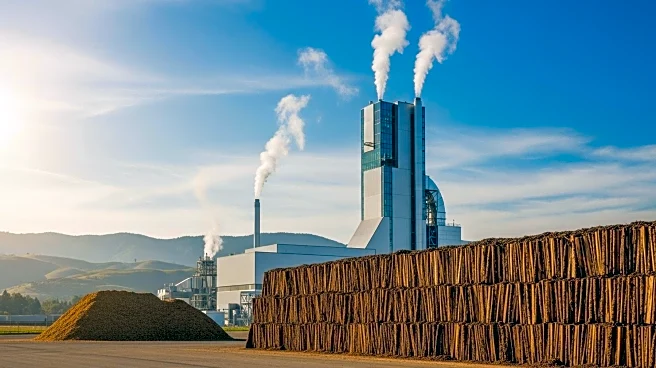What's Happening?
California aims to reduce wildfire risk by thinning overgrown forests, generating approximately 10 million tons of wood waste annually. Arbor Energy, a biomass energy project, planned to convert this waste into energy while sequestering carbon underground. Despite initial state financial backing, Arbor's ambitions in California fell through due to regulatory challenges and funding issues, prompting the company to relocate its operations to Louisiana. The state has faced difficulties in advancing biomass projects due to distrust of the technology and stringent permitting requirements. Environmental groups argue that bioenergy projects risk emitting carbon and polluting communities, advocating for alternative uses of wood waste such as fertilizer and mulch.
Why It's Important?
The struggle to implement biomass energy projects in California highlights the complexities of balancing environmental protection with the need for innovative solutions to mitigate wildfire risks. Biomass energy could potentially fund forest-thinning projects, which are crucial for reducing wildfire fuel. However, the technology's controversial past and regulatory hurdles have impeded progress. The relocation of projects like Arbor's to states with less stringent regulations underscores the challenges California faces in leveraging biomass energy for wildfire mitigation. This situation affects stakeholders including environmental groups, state agencies, and communities near potential biomass facilities.
What's Next?
Arbor Energy plans to build its first commercial facility in Louisiana, supported by private investors and carbon credit agreements with companies like Microsoft. The move reflects a broader trend of biomass projects relocating to states with more favorable regulatory environments. California continues to seek funding sources for its wildfire mitigation efforts, potentially revisiting biomass energy as a viable option. The state's forest and wildfire leadership may need to explore alternative strategies or adjust regulatory frameworks to attract and retain innovative energy solutions.
Beyond the Headlines
The debate over biomass energy in California raises ethical and environmental concerns about the impact of such projects on local communities and ecosystems. Critics warn of potential pollution and carbon emissions, emphasizing the need for careful implementation and monitoring. The situation also reflects broader challenges in transitioning to sustainable energy solutions while addressing urgent environmental crises. Long-term shifts in energy policy and forest management practices may be necessary to reconcile these competing priorities.









